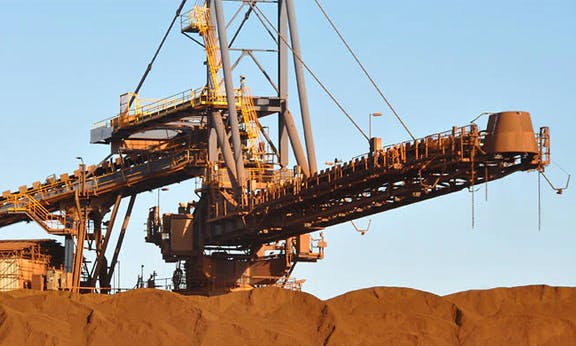Yindjibarndis vs. Twiggy: ‘We will make you pay dearly’

The Yindjibarndi people are no strangers to struggle. After a 14-year battle with Andrew “Twiggy” Forrest’s Fortescue Metals Group (FMG), they are one step closer to gaining compensation from a mining company — a first in Australian history.
Initiated in 2003, the case is one of the longest running native title disputes. Many elders have passed away in that time, including Mrs Pat, mother of death in custody victim John Pat.
In 2017, Yindjibarndi Aboriginal Corporation (YAC), located near Roebourne in Western Australia’s remote Pilbara region, won their native title claim to exclusive possession of their lands. Prior to the ruling, they held non-exclusive possession, opening the door for mining to be carried out. Yindjibarndi land is where FMG’s massive Solomon Iron Hub mine currently stands.
FMG has appealed last year’s decision. However, YAC has maintained for years that if FMG’s appeal fails, it will sue the company.
Back in 2011, YAC CEO Michael Woodley told the Sydney Morning Herald, “They say they will mine 60 million tonnes a year at first, rising to 100 million tonnes or more in future. That 60 million is worth around $10 billion at today's prices and these are rising all the time. Fortescue’s $4 million a year cash offer was for a fixed payment of just 0.057 per cent of the mine income”.
Since then, the Solomon Iron Hub has cashed in $4 to $5 billion in gross revenue from its production. The Yindjibarndis are yet to see a single dollar.
Under the Native Title Act, traditional owners are able to negotiate land usage “in good faith” for six months. In 2011, after negotiations broke down, the then Liberal state government granted FMG a lease to mine the iron ore-rich Yindjibarndi country.
In the negotiations, YAC was seeking 5 per cent of the mine’s production value. FMG refused. YAC then brought its claim down to 2.5 per cent. This, too, was not good enough for FMG.
YAC then proposed 0.5 per cent, the standard across the industry for Pilbara iron ore royalties for traditional owners. The result? No deal.
FMG’s proposed deal was a capped amount of $4 million per year plus training, employment and housing benefits valued at $6.5 million a year, regardless of the level of company profits. This time, YAC said no.
FMG’s modus operandi in recent years has been cost cutting and super profits. In 2016, by addressing “inefficiency” and “reducing its workforce” (read: sacking workers), it posted a half-year profit of US$1.2 billion, a mind-boggling increase on the US$319 million it made the previous year.
WA’s Pilbara region has long been a place where massive wealth rubs shoulders with abject poverty. The mining towns of Karratha and Port Hedland boast the administrations of some of the biggest iron ore operations in the world; some white mine workers can earn more than $100,000 a year.
By contrast, in nearby Roebourne, where many Yindjibarndis live, the majority Indigenous town lives in sometimes slum-like conditions. Jobs are scarce. For Yindjibarndis, mining tribal land is a troubling concept.
“We don't want to be trained as labour for Fortescue's mines”, said Woodley. "We want a fair share in the mineral wealth of our traditional country, to create our own businesses and jobs, to deliver better health care and educate our children.”
Woodley last year told the Australian newspaper, “This shows the arrogance of Andrew Forrest as chairman of this organisation, and the lack of respect he has for Indigenous people. It also shows there is no chance FMG are wanting to build a relationship with the Yindjibarndi people”.
Twiggy Forrest has a history of “helping” Indigenous people. In 2017, he told the ABC in a statement, “We oppose ‘corporate cash welfare’, largely because we have seen the statistics of communities that are run by people who simply believe in hand-outs, hence the significant effort and resources we have provided to date in education, training, housing, and employment”.
The hypocrisy is galling – one can imagine the outrage if the same logic were applied to Forrest and his billionaire mates who enjoy generous corporate tax breaks and subsidies.
Forrest has previously stated that the more he knows Indigenous people, the more he loves them. This avuncular, plantation-style affection seems to evaporate when those same people stand in the way of land he wants to mine.
YAC’s vice-chairwoman Margaret Read told the ABC in 2017, “It might make other Australian people’s lives better … but he’s actually destroyed the Yindjibarndi tribe. We don’t ask for many, many dollars. All we’re asking for is a fair go … for whatever they do on our land, we need to be compensated as well. All I can say to you is, when we get our native title, we will be putting in for compensation, and we will make you pay dearly”.